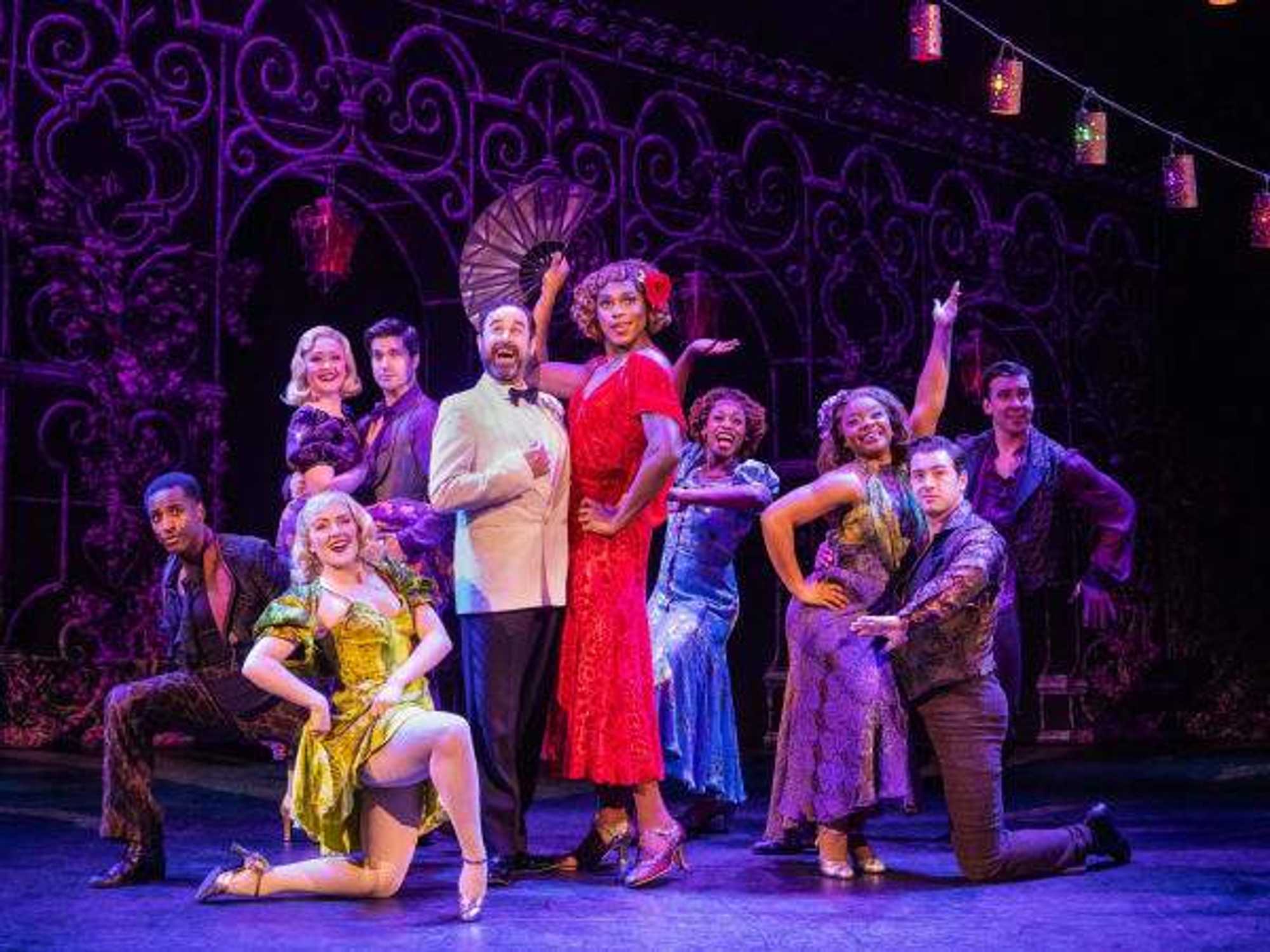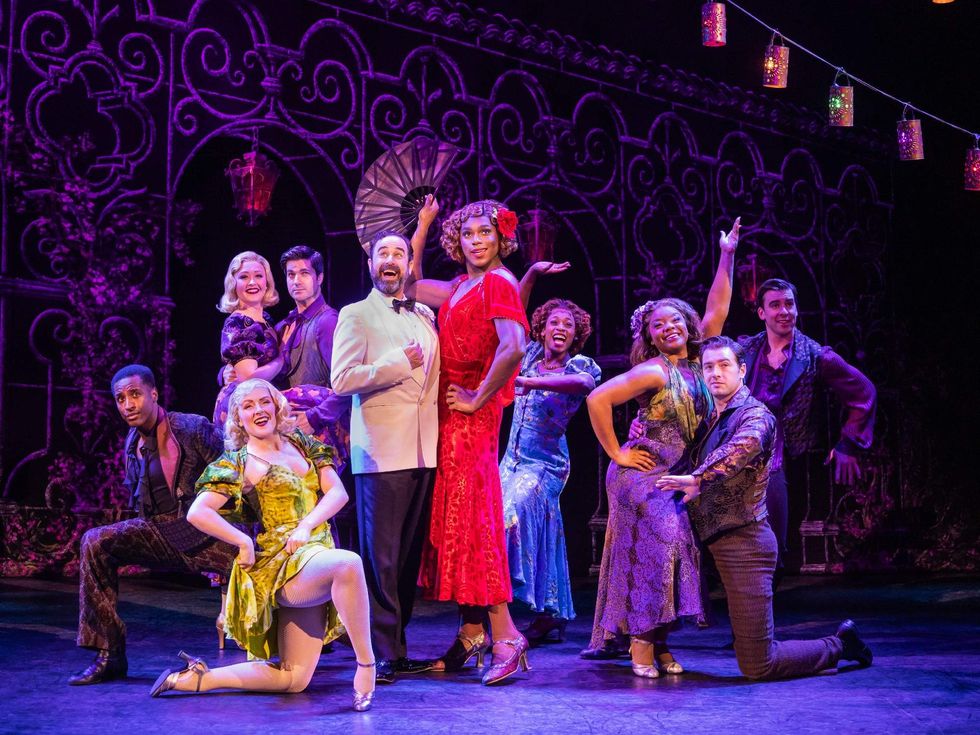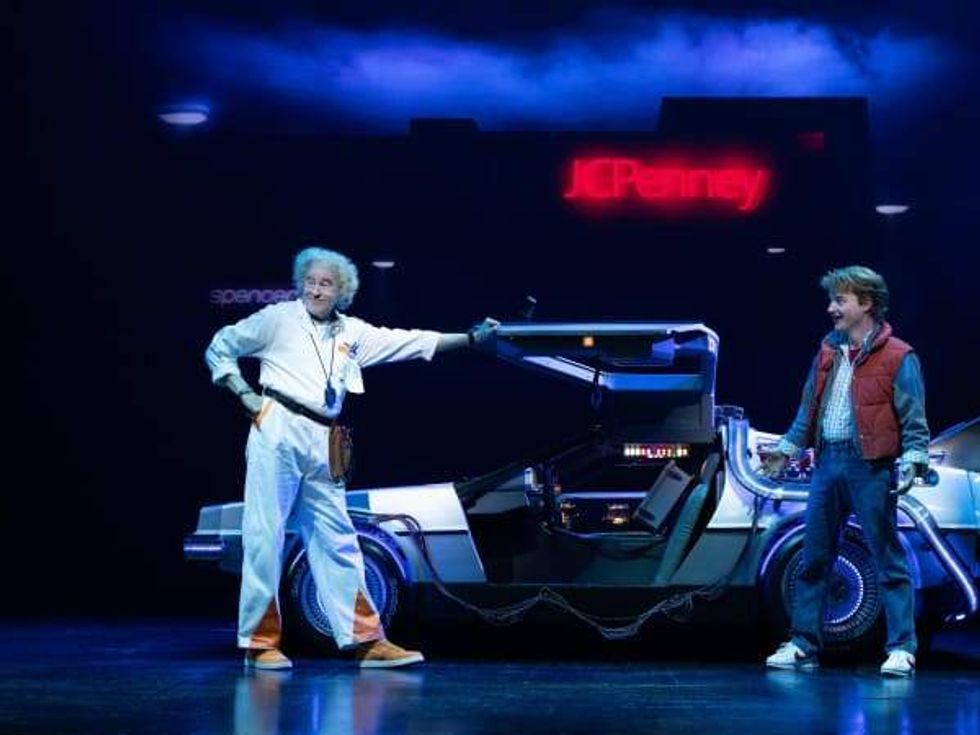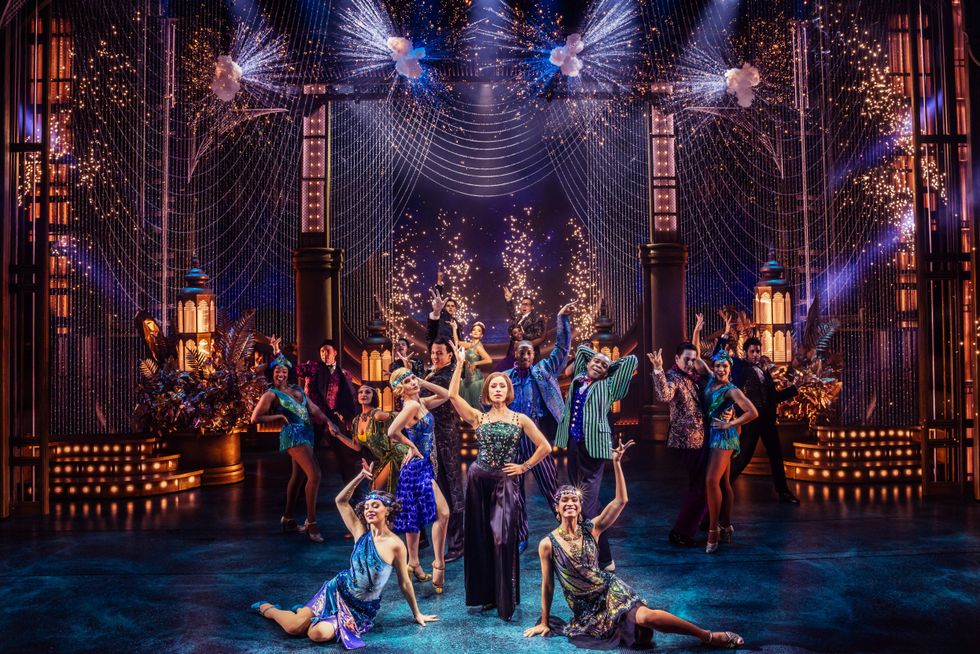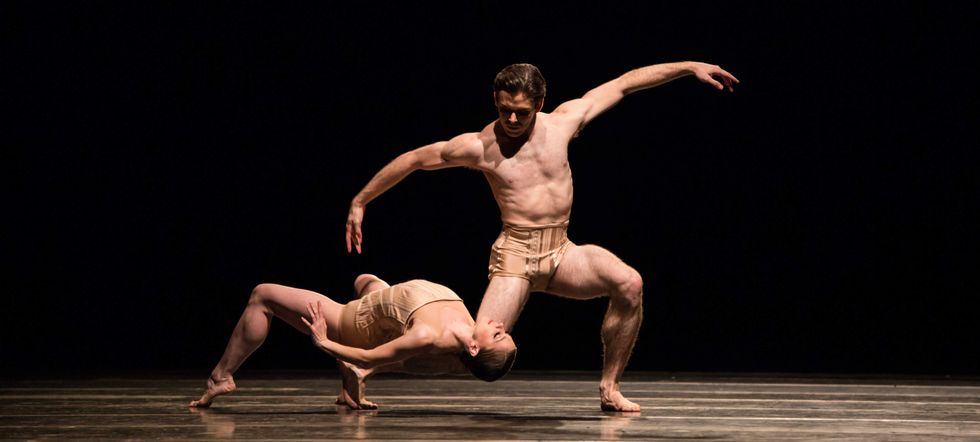Conductor Search
The wildcard candidate: Mark Wigglesworth practices baton war, rebukes cellphoneusers & Symphony jumps
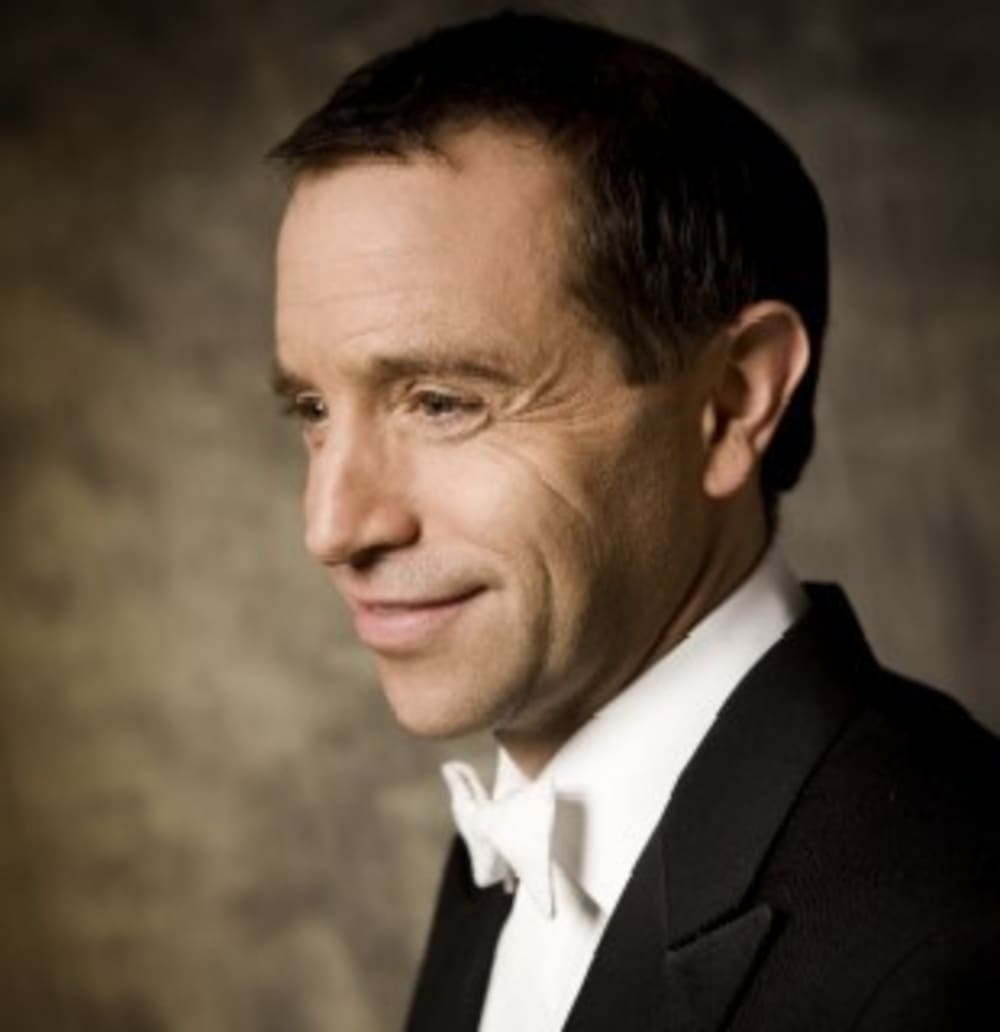 Mark Wigglesworth uses his baton as a weapon — and isn't above ruffling a fewfeathers.
Mark Wigglesworth uses his baton as a weapon — and isn't above ruffling a fewfeathers. Don't you dare use that cellphone while Wigglesworth is conducting.
Don't you dare use that cellphone while Wigglesworth is conducting.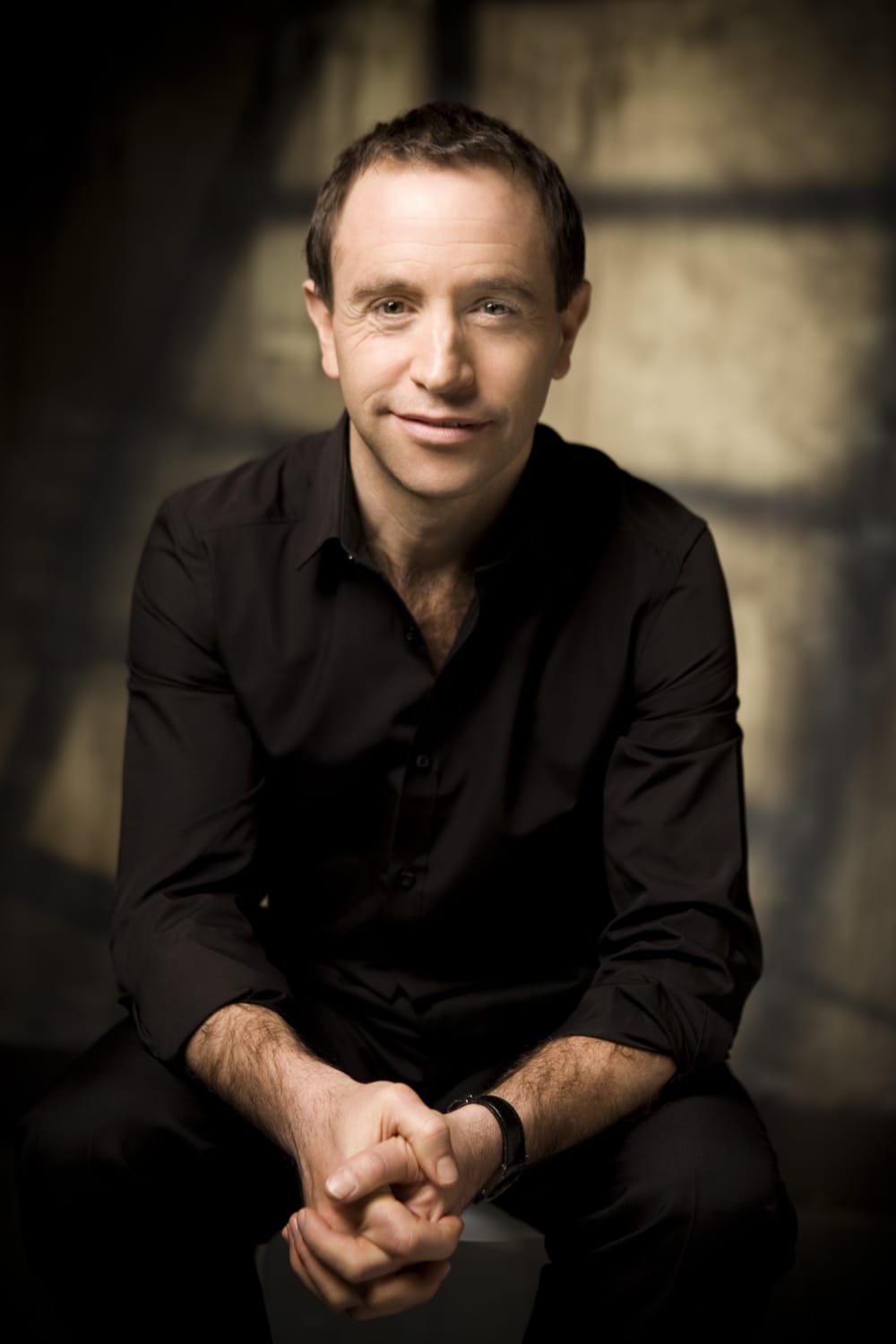 Mark Wigglesworth
Mark Wigglesworth
With a name like Wigglesworth, you are either a pompous feline in need of constant pampering, a Harry Potter character or just British. Given what the Houston Symphony has had on stage — Nora's CATcerto debut roared Pops audiences — it was a tossup as to who would promenade out last weekend.
Doubtfully, purring would not lead to a successful interpretation of Prokofiev's Alexander Nevsky, Wagner's Prelude to Parsifal and Stravinsky's magical L'Oiseau de Feu (Firebird). Instead it was Mark Wigglesworth, 46 years old, still young as far as world acclaimed conductors are concerned, but not a baby like James Gaffigan.
A tour de force program that called attention to Stravinsky's and Prokofiev's professional rivalry, this almost all-Russian evening tested the listening endurance of the audience. It was a lot to take in one sitting. Not due to length, but due to the music's strong demonstrative qualities. It worked.
The Houston Symphony is two for two (my best attempt at a sports analogy), rocking out yet another concert, allowing me to continue to speculate on the orchestra's new maestro pending Hans Graf's retirement in 2013.
Hailing from Sussex, England, Wigglesworth has already stood on the world's most coveted podiums including Berlin, London, Oslo and Israel philharmonics, La Scala in Milan, the Royal Concertgebouw and Budapest festival orchestras and the Sydney and Melbourne symphonies.
Wigglesworth made his debut in Texas (with the Dallas Symphony in 1992) and he is a favorite with the Cleveland and Philadelphia orchestras, New York and Los Angeles philharmonics and the Boston, Chicago, San Francisco, Montreal and Cincinnati symphonies. In 2005, he made his Metropolitan Opera debut with Mozart's Marriage of Figaro.
He is returning this summer to the Aspen Music Festival and School and makes regular appearances with the New World Symphony.
That means Wigglesworth values education.
So, why did the Houston Symphony take this long to invite him? This solid debut should mean a repeat engagement and consideration for the post, maybe.
The Prokofiev was epic, chillingly menacing at times and joyfully Soviet at others. The brass shined powerfully, held on to high tessitura chords with poise and achieved perfect releases. The winds sailed through technical passages while the strings played as one.
Wagner is always all or nothing, either transformative or boring. The Prelude to Parsifal was intense. Pieces that require this level of instrumental control expose weaknesses in individual and ensemble playing. There were none. Mystically archetypal and achingly pushing onwards, the collaborative synergy took listeners on a sincere journey.
Stravinsky's Firebird was magically delicious. The mystical opening led to a light and sparkly set of Variations, the virility of the Infernal Dance called for the orchestra's spontaneous combustion and the finale's dissonant harmonic progression under an insistent pedal tone ushered an orgasmic explosion.
Looking at his CV, Wigglesworth appears to have many visiting gigs but a small number of permanent professional affiliations. Actually, his last post as music director of La Monnaie/De Munt opera house in Brussels ended abruptly. Conflicts with the orchestra and negative reviews elevated the crisis into "musical mutiny," according to a Bloomberg report.
Wigglesworth experienced a similar fallout with the BBC Symphony Orchestra, where he served as associate conductor from 1991-93, the Telegraph reported.
In our current economic landscape, where the validity of institutions like the National Endowment of the Arts and the Texas Commission on the Arts are in question, discourse has turned to doubting the importance of the arts in general. It's essential that the future music director has the ability to synergize and not polarize.
Tread with caution. Perhaps Wigglesworth has changed. Or perhaps orchestra hopping is his personal strategy to not piss off those that pay his bills. Or maybe he just likes being a serial symphony polygamist.
The pros:
- Wigglesworth conducts with perpetual energy, coming across as comfortable and almost childlike on stage. He considers the overall architecture of music and understands how to keep the affect moving forward. For the concertgoer, the result is thrilling. The music making? Sublime.
- Live music should be theatrical, if not we would all stay home and listen to recordings. His presence is grand. He balances between entertaining, relevant and sophisticated mannerisms without being distracting or taking attention away from the music itself. A Houston Symphony musician candidly confided to CultureMap that he was extremely fun to work with.
- At 46 years of age, Wigglesworth has decades of conducting in front of him. It would be ideal to have someone with his vitality, still young in terms of his career, but not wet behind the ears.
The cons:
- He doesn't seem to respect silence in between and after movements. As sound reverberates through the hall, the experience of allowing a listener to take it all in before letting go of the emotional tension is powerful. How the conductors starts, transitions and ends a piece is just as important as the music itself. I did learn that he had no qualms about exchanging words with an audience member when her cell phone chimed hello as the eerie introduction of Firebird commenced.
- While the Wagner showed his lyrical and elastic interpretive extremity, pulling phrases to the verge of being self-indulgent, his ambitious tempi in Firebird flew through virtuosic sections in the Variations and the Infernal Dance. Though handled with magical dexterity by the wind section, the speed didn't allow this listener to tune into the exotic chromaticism that make the sonorities tingly. I wished for a little more gratification by slowing things down and giving instrumentalists a chance to play with colorful abandonment.
- Previous conduct concerns should raise a flag. Classical music is at a fragile time and no arts organization needs any sort of bad publicity, especially if it can be avoided altogether.
The other stuff:
- His is British and Houston likes accents. Loosing Anthony Freud to Chicago Lyric, we may need another English speaker with a saucy drawl.
- He may lack conductor hair, but his sprightly and vigorous swaying did allow for free and satisfying movement of the tails of his tuxedo jacket.
- Conducting movements observed: Karate Kid "wax on wax off," on the toes action, menacing accusatory finger pointing and more than a few fencing footless explosive lunges. His baton is a weapon.
Mark Wigglesworth in rehearsal, working through Mozart's Jupiter Symphony with the Royal Stockholm Philharmonic Orchestra:
